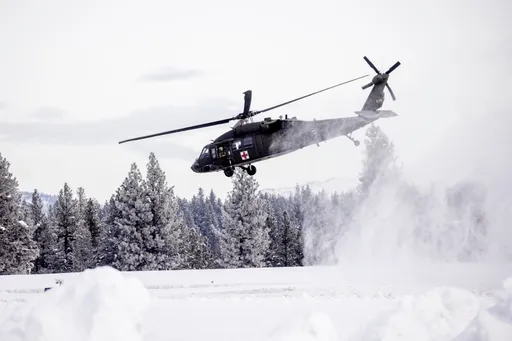Reporting in China's Wuhan of a still burgeoning Covid-19 outbreak was allegedly stifled by authorities who did not take swift enough measures to combat the virus.
Incriminating reports from an independent panel of experts and footage from Al Jazeera released on Monday come together to paint a picture of a country that obfuscated the contagiousness and scale of the outbreak and of a slow-responding World Health Organization.
Covid-19 was first detected in the central city of Wuhan in late 2019 before seeping beyond China's borders to wreak global havoc, costing more than two million lives and eviscerating economies.
Journalists stonewalled
The Qatar broadcaster said on Monday the footage – recorded by two Chinese journalists who filmed undercover from January 19 to January 22, 2020, and were unable to publish it in China – was smuggled out to its investigative unit.
The two journalists, Yang Jun and Chen Wei – whose real names Al Jazeera has decided not to disclose for their protection – were in Wuhan before a full lockdown was imposed and the number of official cases was low.
During the course of their visits to increasingly occupied hospitals and the Huanan seafood market, Jun and Wei found themselves stopped by police and security personnel several times.
The journalists were allegedly stonewalled by authorities several times during their deployment in Wuhan although they worked for Chinese state media and had acquired permission from Wuhan’s municipal media affairs department.
READ MORE:Chinese whistleblower jailed over Covid-19 reports from Wuhan
'I can't report with freedom'
In his diary, Jun wrote that the scale of secrecy indicated the seriousness of the virus.
"I can’t report with freedom. As long as the government institutions are involved, I am constantly followed and spied on," Jun wrote.
"Information about the outbreak is hidden in secrecy and very difficult to get. During the three days of my reporting in Wuhan, I was constantly stopped by the police and hospital personnel. So, I realised how serious the virus is and how sensitive and difficult it is to report this topic. It’s totally beyond my imagination."
The footage also reveals a general nonchalance in the public about the virus, a lack of fear and concern over the gravitas of the situation.
Jun further wrote in the diary: "When I arrive, people seem to have no fear or concern about the virus at all. Some haven’t even heard about it."
"A stall owner asks me to take off my mask. He says ‘You are obviously an over-worried outsider. Everything is fine here,'" Jun wrote.
'China and WHO did not act fast enough'
The Independent Panel for Pandemic Preparedness and Response, set up by the director general of the World Health Organization, said its evaluation of the start of the crisis in China "suggests that there was potential for early signs to have been acted on more rapidly".
Containment measures should have been implemented immediately in all countries where transmission was likely, the panel said in their second report, due to be presented to the WHO's executive board on Tuesday.
The panel said it was clear that "public health measures could have been applied more forcefully by local and national health authorities in China in January".
The report also criticised the WHO for dragging its feet at the start of the crisis, pointing out that the UN health agency did not convene its emergency committee until January 22, 2020.
And the committee failed to agree to declare the outbreak a Public Health Emergency of International Concern (PHEIC) – its highest alert level – until a week later.
READ MORE: A year after first death, origins of Covid-19 still shrouded in mystery
WHO team in Wuhan
China's blase approach to the deadly virus continued as millions travelled to celebrate the Chinese New Year but stopped short as authorities soon imposed lockdown measures, triggering panic and uncertainty.
By that time, the virus had spread to other parts of the country and then eventually the rest of the world.
A WHO team is currently preparing to collect data in Wuhan, which lies to the south.
The international team, most of which arrived on Thursday, must undergo two weeks of quarantine before it can begin field visits.























